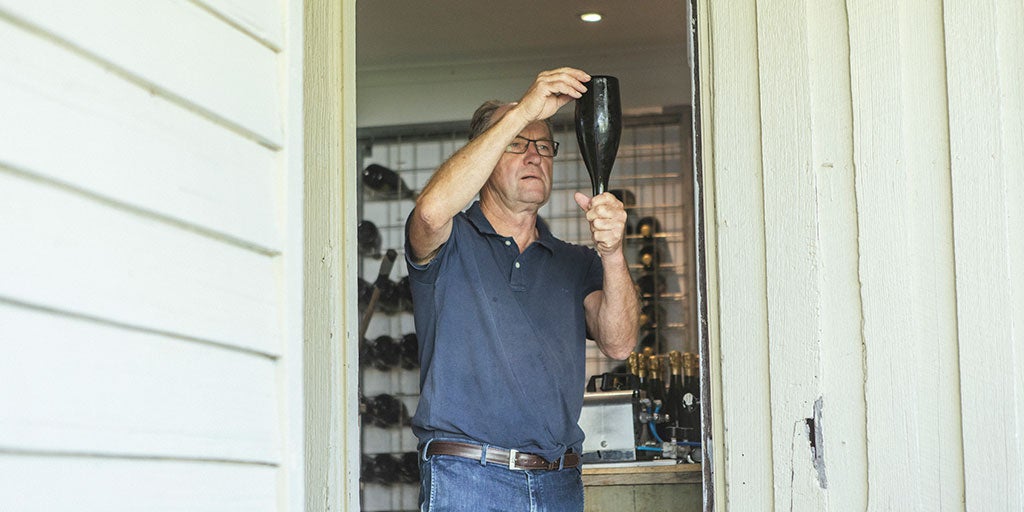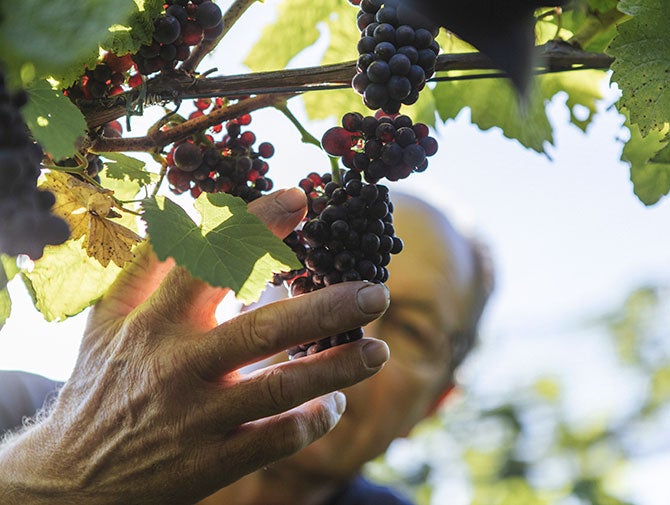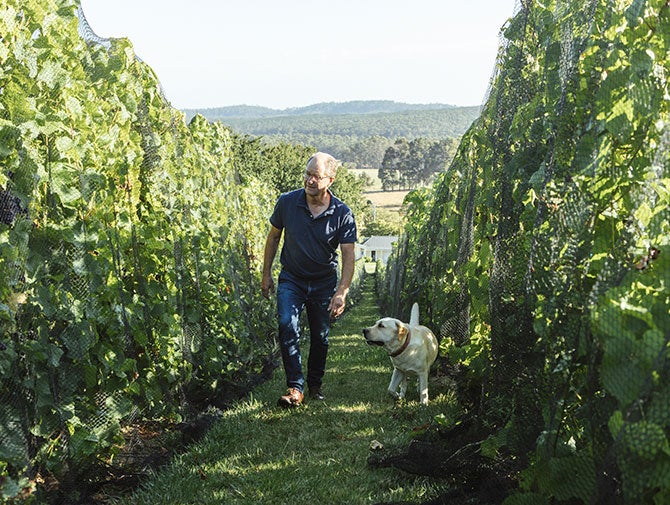
Andrew Pirie
Dr Andrew Pirie is one of Australia’s most respected wine producers. He saw Tasmania’s potential before most, and in the 1970s planted the Pipers Brook Vineyard, the largest at the time. He also founded the internationally acclaimed Ninth Island and Pirie Tasmania, completed Australia’s first PhD in viticulture and was awarded a Member of the Order of Australia (AM) for services to Tasmanian wine and tourism. Now, having sold his earlier ventures, Andrew’s attention is on his latest vineyard where he’s producing premium sparkling wines from a small, hand-tended area.

Reaching the peak
When Andrew planted his first vineyard in Tasmania in the 1970s, he was one of a small group who believed the untamed, cool-climate island had a big future in wine. Cut to today and it’s home to some of Australia’s priciest grapes and best wines.
Andrew has championed the local wine industry for decades, establishing some of the region’s most prominent wine brands. In the 1990s he took Tasmanian wine to the world when his 1994 Ninth Island Chardonnay won the white wine trophy at the International Wine Challenge in London.

In 2007, with so much success already behind him, Andrew found the perfect site to plant his dream vineyard, and his label Apogee (meaning ‘the highest point’) was born.
“I wanted to get back to running my own vineyards, to growing the grapes,” says Andrew. “To control all the steps is the ultimate in winemaking.”
The vineyard is dedicated to sparkling wine, growing mainly Chardonnay, Pinot Noir and Pinot Meunier. It’s restricted to 2 hectares, which Andrew believes is the perfect size for producing the best possible fruit. Using only grapes from his vineyard, he crafts acclaimed sparkling wines.
“It’s a very long journey from growing the grapes to when the cork goes in,” says Andrew. “It’s generally about a four- to five-year process with a lot of steps on the way. It does mean that you can set your own stamp on the style because there’s a lot of steps you can tweak.”
Beyond Apogee, Andrew still contributes to the Tasmanian wine community in various ways. For good measure he’s also a climate scientist who has researched the effects of climate change on cool-climate wine regions.
“It’s important to understand what’s going to happen with climate and wine styles, and how long we have got to keep doing what we’re doing,” he says.


Disclaimer
This information is presented in good faith and on the basis that Wine Australia, nor their agents or employees, are liable (whether by reason of error, omission, negligence, lack of care or otherwise) to any person for any damage or loss whatsoever which has occurred or may occur in relation to that person taking or not taking (as the case may be) action in respect of any statement, information or advice given via this channel.







